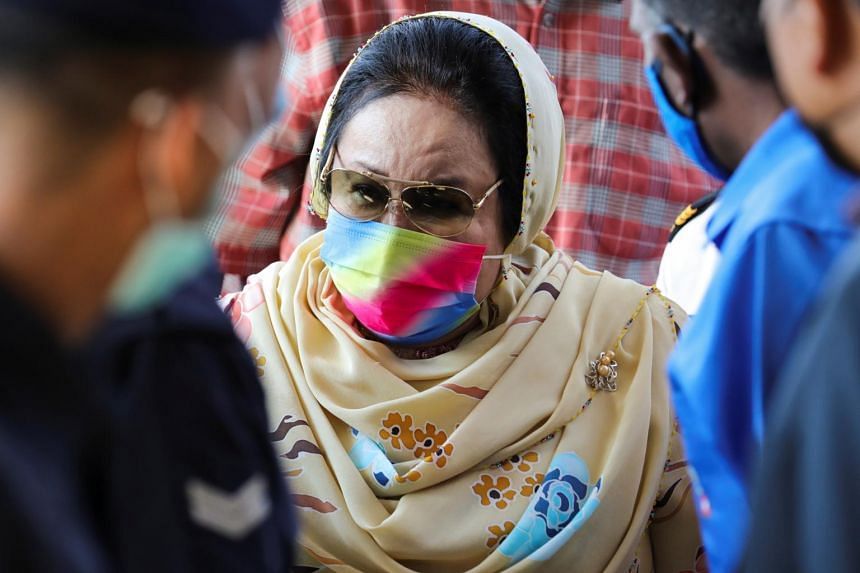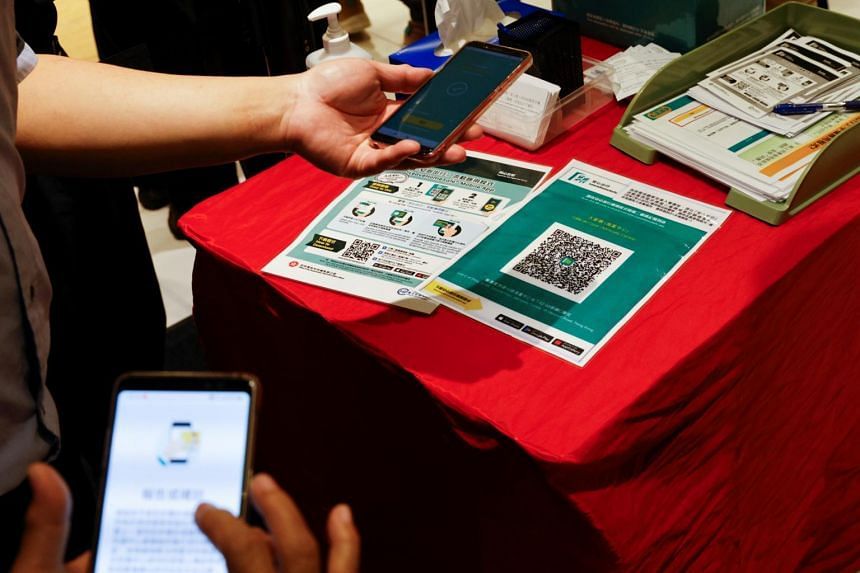Asian Insider, Feb 18: Hackers hit Myanmar govt sites, Facebook blocks Australians from news
Hi all,
In today’s bulletin: Hackers target Myanmar government websites, Malaysian court orders Najib’s wife Rosmah’s corruption trial to proceed, Facebook blocks Australians from news feeds, US seeks Taiwan’s help over global chip shortage, and more.
Reading this on the web or know someone who might enjoy receiving Asian Insider? Our sign-up page is here.
Hackers hit Myanmar govt sites; junta seeks celebs’ arrests
Hackers attacked military-run government websites in Myanmar on Thursday (Feb 18) as a cyber war erupted after authorities shut down the Internet for a fourth straight night. A group called Myanmar Hackers disrupted multiple government websites including the central bank, the military’s propaganda page and state-run broadcaster MRTV.
Meanwhile, the junta issued arrest warrants against six celebrities, including film directors, actors and a singer, for encouraging strikes that have paralysed many of the country’s government offices in protests against the coup that ousted elected leader Aung San Suu Kyi. Total arrests are now nearing 500.
Read more: Protests alone won’t save democracy in Myanmar (for subscribers)
Get the latest developments from Myanmar here.
M’sian court orders Najib’s wife Rosmah’s graft trial to proceed
Former Malaysian prime minister Najib Razak’s wife Rosmah Mansor will have to defend herself against corruption allegations over a solar project in Sarawak, after the Kuala Lumpur High Court judge said the prosecution had established a prima facie case for Rosmah to answer, Malaysia correspondent Hazlin Hassan reports.
Rosmah, 69, is charged with two counts of accepting RM6.5 million (S$2.14 million) in bribes from Jepak Holdings director Saidi Abang Samsudin to ensure the firm won a tender to provide solar power generators to hundreds of rural schools in Sarawak. She also faces one charge of soliciting a RM187.5 million bribe from Mr Saidi.
Also read: Business partner in solar project threatened to expose Najib and Rosmah
Earlier: I carried two bags of cash into Rosmah’s house, witness tells court
Facebook blocks Australians from viewing news, public information
Australians woke to empty news feeds on their Facebook pages after the social media giant blocked all media content in a surprise and dramatic escalation of a dispute with the government over paying for content.
The move was swiftly criticised by politicians and the public, who pointed out that even emergency services and official health and meteorology information had been scrubbed. Facebook later restored government services’ pages, but angry calls for users to delete the platform are growing.
Go deeper: Australia’s news revenue-sharing law behind battle with Big Tech
Yesterday: Australian media firms squeeze more from Google as new law looms
US seeks Taiwan’s help to resolve global auto chips shortage
US President Joe Biden’s top economic adviser Brian Deese has asked Taiwan to help resolve a global semiconductor shortage that is crippling American carmakers and posing an early challenge to the new US administration. Washington has instructed US embassies around the world to identify how foreign countries and companies that produce chips can help address the global shortage. Taiwan is home to the world’s biggest semiconductor manufacturing industry, and also relies on US weapons to defend itself against China.
2021: A year of hope in the climate battle
Landmark pledges on greenhouse gases by China, Japan and South Korea, alongside a change of US administration, have re-energised global climate diplomacy. There is growing willingness to step up action, but the global goodwill still needs to deliver – and there’s very little time left, Climate change editor David Fogarty writes (for subscribers).
Things are certainly moving in Asia. This past week saw several baby steps towards a more sustainable future for the region, Associate editor Ravi Velloor says (for subscribers). These include China’s issuance of its first-ever batch of carbon-neutral bonds, and India’s Tata-owned luxury car group Jaguar Land Rover unveiling plans to go electric, among others.
Follow our climate change stories here.
In other news…
Hong Kong sees rush for burner phones as govt pushes contact-tracing app: Demand for cheap burner phones has surged in Hong Kong as the Chinese-ruled city pushes the use of a contact-tracing app that has raised privacy concerns despite the authorities’ insistence that it stores data only on users’ phones and that no third party collects it.
Malaysian police arrest founder of sugar-daddy dating platform Sugarbook: Malaysian police have arrested the founder of Sugarbook, a “sugar daddy” dating platform that drew public attention after it named 10 Malaysian universities as having the most students who chose to become “sugar babies” to finance their lifestyles.
China’s amended criminal law leaves young offenders with nowhere to hide: Offenders as young as 12 will not be able to rely on their tender years to escape criminal punishment, as China amends its criminal law such that the minimum age of criminal responsibility can be lowered in special circumstances. The change takes effect on March 1.
Innate immunity protects children from severe Covid-19 symptoms: A new study, led by the Murdoch Children’s Research Institute in Australia, has found that children tend to develop mild Covid-19 symptoms because their innate immune system is quick to attack the virus. Scientists analysed blood samples from 48 children and 70 adults across 28 Melbourne households infected with or exposed to Covid-19.
That’s it for today. We’ll be back tomorrow with more good reads.
Magdalene
Want more insights into fast-changing Asia from our network of correspondents? Get this article in your inbox by signing up here.
Sign up for the ST Asian Insider newsletter to get exclusive insights into Asia from our network of overseas correspondents.
Source: Read Full Article








